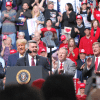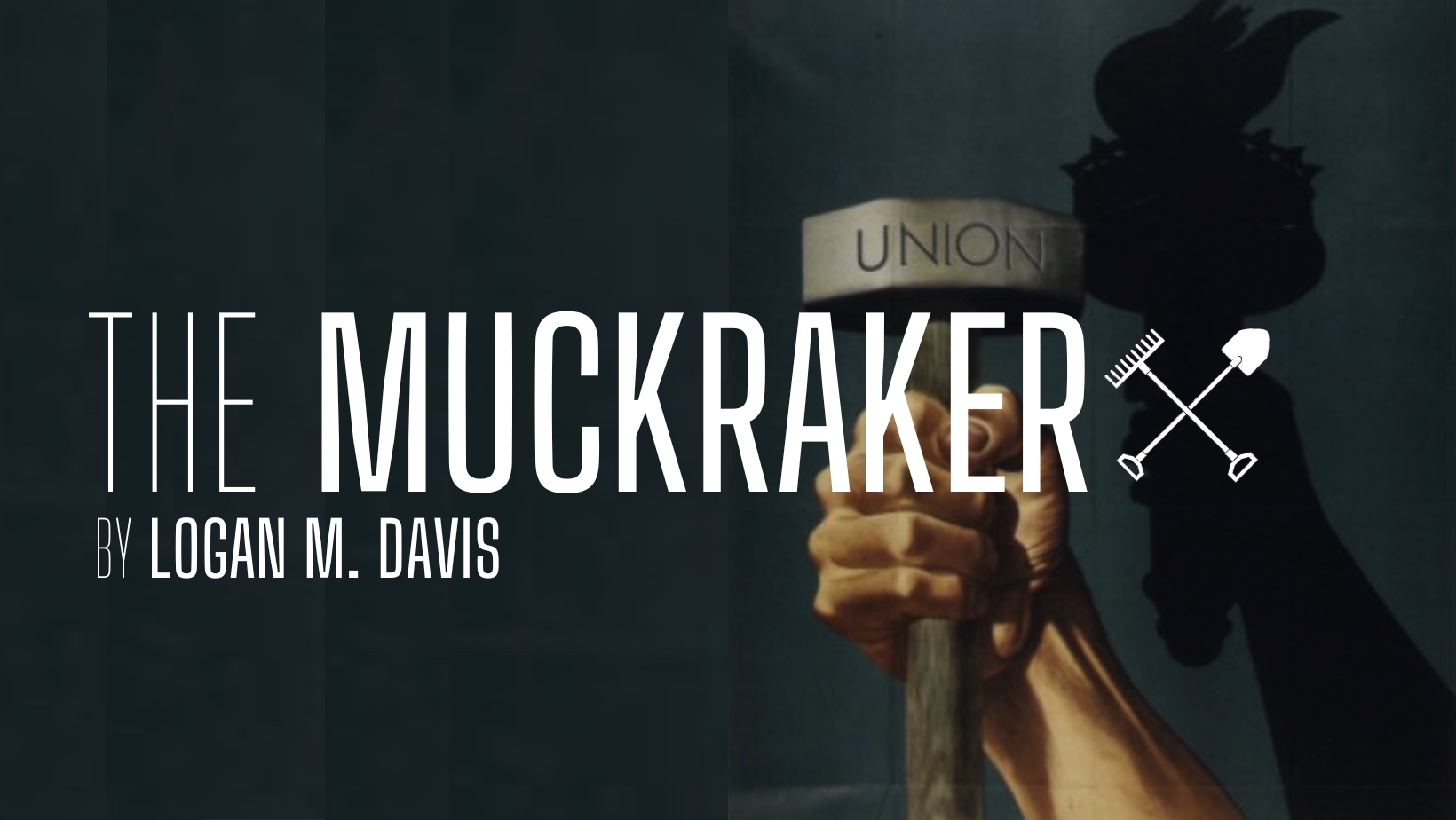On an unseasonably warm Sunday afternoon in January 2021, my friends and I gathered around a shoddy table in a borrowed conference room for the specific purpose of causing trouble. Some were legislative aides, historically underpaid and mistreated at the state Capitol. Some were campaign workers, historically underpaid and mistreated on the campaign trail. All of us knew we deserved better, and all of us had come to the realization that asking nicely wasn’t going to do the trick. We had gathered to put a collective foot down.
By the time we departed that afternoon, we had assembled the document which would become the first official bylaws of the Political Workers Guild of Colorado. While that document – a copy-pasted nightmare of a rush job, stitched together from scraps of other union bylaws, tailored clumsily to our nascent cause – has been edited and amended in successive years, the group it animated has remained. Today, three years later, PWG is the largest unit in the Denver local for the Communications Workers of America/The News Guild, representing 100-plus workers in the state capitol and on the state’s campaign trails – more than three times as many members as we had at the start.
In the past three years, PWG has made real gains for real workers. We have meaningfully improved pay and conditions for legislative aides at the state capitol, and have established best practices for pay, time off, and treatment for campaign workers.
I thought I knew a thing or two when we launched this experiment. Now, looking back on three years in union leadership, three years of challenging power and winning, I could fill volumes with what I didn’t know at the beginning. The lessons I’ve learned in three years of stepping outside the established boundaries have taught me more about politics – and more about power – than coloring inside the lines ever did.
These are my biggest takeaways.
A Union is its People, Not its Contract
To get the jargon out of the way early: the Political Workers Guild of Colorado is what’s known as an open-model union, organized under CWA/NewsGuild. Unlike traditional unions where the members of a unit share a workplace and work according to a contract negotiated between management and the union, our membership, and our approach, has always been more diffuse.
This was in part a matter of necessity: when PWG formed, Colorado legislative aides were explicitly forbidden from collective bargaining, and campaign workers – who are primarily independent contractors and likewise deprived of the right to bargain – have no central entity with which to bargain, even if they had the right to do so.
In the strictest sense, we did not have a right to form a union. We did it anyway, and became the first group of our kind in the country.
What we lacked in rights, we made up for in knowledge: knowledge of the key political players in the state, and knowledge of the value of our labor. “They need us,” we reasoned. “If they fire aides, we’ll refuse to work for their campaigns,” those of us on the political side promised, hoping it wouldn’t come to that; hoping we would hold to the promise if it did. “They can’t fire all of us,” we repeated to each other, mantra-like, in the early months.
With this rationale, and no evidence that it was true, we made our public debut – and it turned out we were right. Within a month of our launch, we had secured recognition from the Speaker of the House and the Senate President. Within three months of our launch, we had secured something much more important: healthcare for legislative aides, for the first time ever.
Now, in 2024, PWG represents a supermajority of Colorado legislative aides. We represent dozens of campaign workers, many of whom manage races for the same elected officials employing the legislative aides in the capitol. At first, we grouped these two kinds of workers together to ensure our survival: to create a larger body of members to look out for one another, to exert pressure for one another. What started as a matter of survival ultimately gives us our greatest strength — our shared identity as laborers in the machinery of democracy, deeply wedded to hoped-for outcomes, sick of being grist for the mill. Our shared identity as political workers.
As an open-model union, we have never had the luxury of a contract. We have had to operate in the way unions operated before the Clayton Act, or the National Labor Relations Act of 1935: with no guardrails, no real institutional or legal protection, and no one to fight for us but us. Together, without a contract or an official right to bargain collectively, we have helped establish the first-ever best practices for campaign workers’ rights, and have increased annual take-home pay for Colorado legislative aides by more than 50% – a series of gains our higher-ups in CWA said rival anything they have seen in their careers.
The Struggle for Workers’ Rights Has Changed – But it’s Far From Over
Unions aren’t what they used to be, it’s true. Gone are the days of Blair Mountain, Homestead, and the Colorado Labor Wars, when workers took up arms and gave their lives for the rights we now have. That’s a good thing. Today’s struggle is for rights and dignity in a different economy, in a different century. It’s being waged by a combination of traditional labor unions and a new wave of unions organizing in non-traditional workplaces. The struggle for workers’ rights has changed in the 21st century, like the economy within which it struggles, but it’s far from over.

A poster produced by the Western Federation of Miners in 1903 after striking miners were arrested in Telluride
Today, the United States ranks last amongst industrialized nations in worker benefits including healthcare, retirement benefits, unemployment, sick days, and time off. That’s not coincidental: it’s the intentional result of years of public policy designed to rollback the gains made by last century’s struggle for workers’ rights, lobbied for in broad daylight by major corporate concerns. Though the Reagan era takes most of the blame, the decline started as early as 1960, as the nation’s postwar profit-making machine revved into gear and real wages began to stagnate.
Though the average American worker’s likelihood of being gunned down by Pinkertons outside the workplace is at an all-time low, the future envisioned by forebears like Mary Harris “Mother” Jones, where workers received a greater share of the profit from their labor, never materialized. In 1960, the United States’ GDP was $543.3 billion. In 2022, it was 5,000 times that size – but the workers who fueled that astronomic growth had roughly the same purchasing power as their grandparents. Despite decades of economic growth, the poverty rate in the United States has not meaningfully declined in more than half a century. The rising tide did not lift all boats.
A few years ago, a new wave of the American labor movement swelled into existence, driven primarily by young people determined to confront the indignities and injustices native to the 21st century economy. Staff at modern fixtures like Starbucks, Amazon, and Google have taken up the fight for safe conditions and fair compensation. In doing so, they have reminded a generation of something the vast majority of Americans have in common, but have learned to forget: that we are workers.
PWG arose out of this refreshed labor movement, spurred to organize by the same subpar realities animating union drives around the country: low pay, lacking benefits, mistreatment, forced indignity, and zero job security. Our members are people determined to play a part in the functioning and maintenance of democracy, who for years were rewarded with low pay, long hours, frequent screaming, occasional groping, and the need to supplement the meager wages earned from their public service by delivering pizza and selling plasma. Capitol aides were paid $15 per hour when PWG started; campaign workers had learned never to calculate their own hourly. It was mistreatment driven less by malice than by institutionalized neglect and the institutionalized neglect and mistreatment at the hands of those who were never taught to value their own labor. It wasn’t going to stop unless we took a stand – so we did, together.
Power Concedes Nothing Without a Demand
We learned two of our most important lessons early: that power concedes nothing without a demand, and that power knows no partisanship. Despite Democratic candidates littering the state with pro-labor mailers, many are content to offer their own staff nothing but long hours, low wages, and zero time-off. Despite Democratic majorities controlling the state legislature since PWG formed, every single concession PWG has extracted at the capitol in the past three years has been denied before ultimately being granted. These experiences taught us not to confuse preaching for practice. They also taught us not to take ‘no’ for an answer.
When we asked for healthcare for legislative aides, we were told it was simply not doable – it’s a matter of law, you see. It’s how the insurance pool is set up. We would love to give aides health insurance, we really would, but we can’t. And even if we could, the members wouldn’t vote for it, it probably wouldn’t pass. Surely you understand. It was the first request we had made, and it was denied out of hand.
That was the first time we didn’t take ‘no’ for an answer.
What happened next is a long story, but the highlights are simple: we secured the support of key committee chairs, we did our own whip count, we did the policy research showing why the initial denial didn’t hold water. Ultimately, leadership relented. When the bill to grant legislative aides access to the health insurance pool came to the floor, nearly every Democratic member of the legislature voted for it.
The problem was never that legislative Democrats didn’t support us, it was that our demands were an unplanned complication for leadership. The problem was not that the former Speaker was opposed on principle to giving aides healthcare, it was that he already had a plan for the year, and our demand was not part of it. That legislative aides would put their hands out, asking for more than they had been given, was a violation of the capitol’s guiding ethos: that there is a way things are done. When confronted with the reality that the way things are done had cast aides into deepening poverty, the immediate response was not “let’s see what we can do about that.” It was “I don’t see what we can do about that.” It was “not every job can pay a living wage.”
We did not just survive that first fight: we won it. In successive years, the Guild’s relationship with legislative leadership has become significantly more productive. I am grateful for the many hours the House Speaker and Senate President have spent in discussions and negotiations with us, and the meaningful improvements we have come together to secure regarding pay, benefits, and hours. The underlying dynamic has remained, though: every eventual ‘yes’ has started as a ‘no;’ every concession has come after the possibility of escalation.
It never hurts to ask those in power for what you need – or to have a plan for how you will get it even without their permission.
There is Power in a Union
The most important thing I have learned in the past three years is that power does not have to be given: it can be taken, it can be built. The reason our union has been successful in challenging power is because we built power of our own.

Every worker has power – the power to provide their labor, and the power to withhold it. When exercised by a single worker, that power amounts to little: the worker’s boss has the power to fire them for withholding their labor, and most jurisdictions in this country give the worker no power to do anything about that. The power of a group of workers, though, is hard for management to match. Fire one worker and you have to replace one worker; fire your entire workforce and you lose time, productivity, institutional knowledge and – more likely than not – money in the process.
“They can’t fire us all,” was the mantra we repeated in the early days, and it was true. Our power came not from daring them to fire all of us, but from understanding what would happen if they did: the capitol would cease functioning, campaigns would stop running. The political reputations of elected officials dependent on union funds for reelection would have been threatened. We had learned our value.
By pooling our power together, we multiplied it. We made of ourselves an entity big enough to take a seat at the table. We put one foot down, then the other – and before we knew it, we were walking forwards into a future that we created for ourselves.
Next week, our growing union will hold its fourth annual leadership elections, the first in which I will not stand as a candidate. PWG will survive without me at its helm. Of that, I have no doubt. Passing the torch is an honor, not least because it means we created an organization, freestanding in its own right, which is more than a shadow cast by its founders.
With my departure from the union’s leadership, PWG enters its second generation: an era in which none of the group’s co-founders remain among its elected leaders. That excites me as well. We survived long enough to reach this point, and accomplished things along the way which we could not have dreamed of at the start. We did those things together; we did them by the fact of our togetherness.
Though we have accomplished much, there is plenty of work left to do: campaigns remain the Wild West of employment law, and legislative aide wages remain below the cost-of-living despite the more than 50% increase we secured. The next generation of union leadership will take up these fights, and the fights over the horizon not yet visible to us.
If history is any indication, they’ll win.
A note: Since November, I have been working on a long-running investigation for the Muckraker column, dealing with one of Colorado’s most prominent outposts for Christian Nationalism. I hope to share some of my findings with you in the coming weeks. In the meantime — and as I work on new investigations going forward — I will publish opinion and analysis pieces under my byline.




